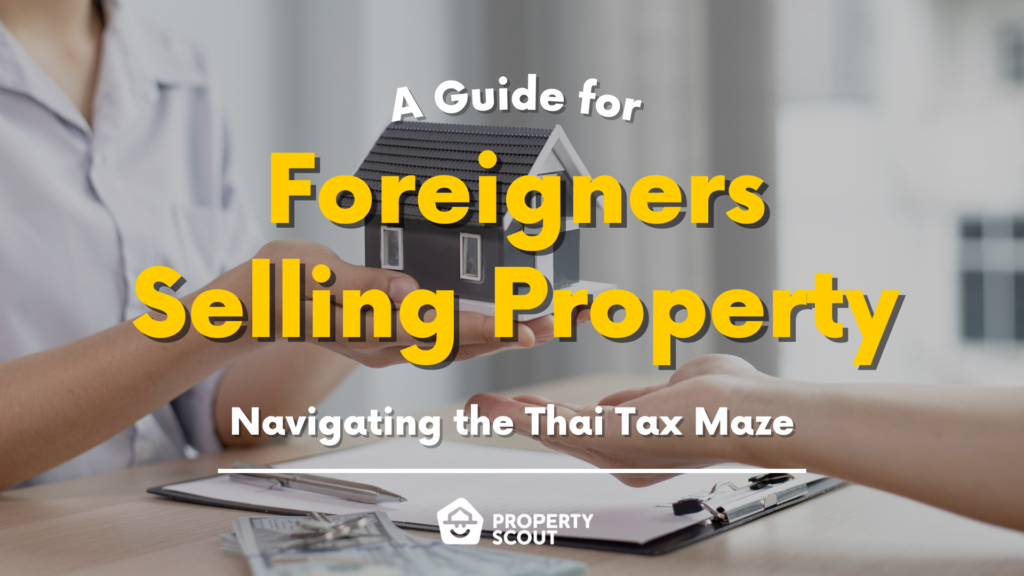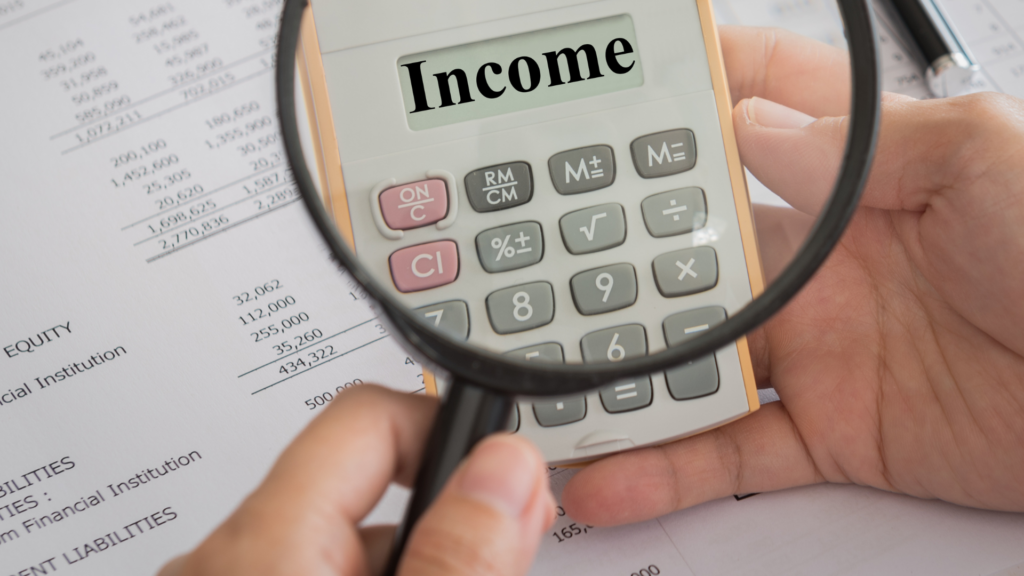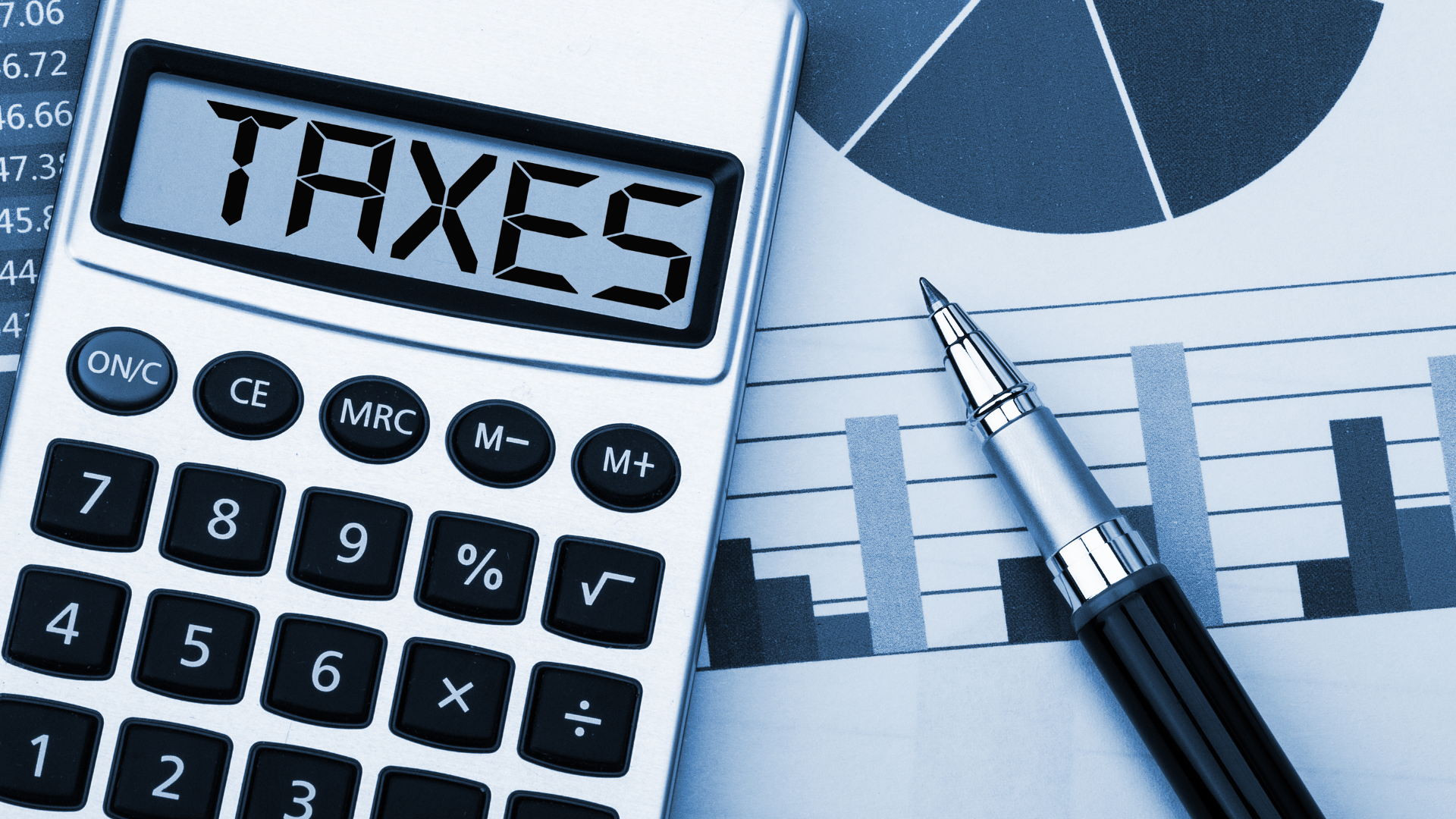In Short
Advice
The aspect of selling property in Thailand as a foreigner is an exhilarating prospect to many, but amidst the palm-fringed beaches and vibrant marketplaces lies a maze of tax regulations waiting to be deciphered. In this all-encompassing guide, we navigate through the twists and turns of the Thai tax maze to empower you with the knowledge needed to sell your property with confidence. So, let's delve into this guide, unlocking the secrets to a successful property sale and ensuring your hard-earned profits find their way safely home.

Personal Income Tax (PIT)

Personal Income Tax (PIT), also known as individual income tax, is a tax on employees' earnings.
Thailand imposes a Personal Income Tax (PIT) via source and residence rule. Source Rule applies to foreigners who earn Thai-sourced income (whether or not said income is paid in Thailand) and are subject to the PIT in Thailand, while Residence Rule applies to foreign-sourced income (depending on the foreigner's status as a tax resident in Thailand).
Gift Tax

Gift Tax is a type of PIT in which the aforementioned source and residence rule still applies. In this case, a foreigner receiving movable properties such as cash, cars, or jewelry from an ancestor , descendant, spouse as support or a gift will be subject to a 5% gift tax on the portion exceeding 20M baht each year. If, however, the movable property is given to the foreigner as part of a formal ceremony, customary occasion, or a moral responsibility by a non-ancestor/descendant/spouse, the 5% gift tax will apply on the portion exceeding 10M baht each year.
Moreover, the gift tax shall be applied on the portion exceeding 20M baht of the immovable property (land, building, condo unit, etc)'s appraised value per legitimate child, in which ownership is transferred without compensation from parent to legitimate children (not adopted children).
Withholding Tax (WHT)
The following are the types of income in which Withholding Tax (WHT) deducts from, both from tax and non-tax resident:
| Income Type | Tax Resident | Non-Tax Resident |
| Employment income | 0-35% of the income | 0-35% of the income |
| Position or Work Performance income | 0-35% of the income | 15% of the income |
| Interest | 15% of interest | 15% of interest |
| Capital Gains | 5-35% of capital gains | 15% of capital gains |
| Dividends | 10% of the dividends | 10% of the dividends |
| Rental Fee | 5% of the rental fee | 15% of the rental fee |
Value Added Tax (VAT)
Foreigners who regularly sell goods or provide services in Thailand (and whose annual revenue exceeds 1.8M baht) must register for Value Added Tax (VAT) before starting the business or within 30 days of earnings reaching threshold of assessable income. Foreigners providing e-service from abroad to Thai users who are non-VAT registrants must also register for VAT. On the other hand, services under an employment agreement, immovable property rental, or actor/actress performances are exempted from VAT. VAT also applies to importers in Thailand, whether or not they are VAT registrants. In this case, VAT will be collected by the Customs Department when the goods are cleared at customs for import.
The general VAT rate is equal to 7% of the goods or service price while VAT returns are filed monthly together with due tax payment within the 15th of the following month.
**Activities such as exporting goods are subject to 0% VAT.
Specific Business Tax (SBT)
Foreigners who sell or transfer an immovable property within 5 years from the acquisition date will be subject to a Specific Business Tax (SBT) of 3.3% of the appraised value or sales price (whichever is greater at the time of registering the transfer at the Land Office).
Stamp Duty
Land or building rental, transferring of shares, and immovable property transfer are subject to Stamp Duty (SD), which can be affixed or paid by cash at the Revenue Office or through the e-stamp duty system on the Thai Revenue Department website.
- Land/Building rental is subject to a stamp duty of 0.1% of the rental fee or key money (or both) for the entire lease period.
- Transfer of share is subject to a stamp duty of 0.1% of the paid-up value of the shares or the shares value (whichever is the greater of the two).
- Immovable property transfer is subject to a stamp duty of 0.1% of the appraised value or sale value (whichever is the greater of the two).
Inheritance Tax

Foreigners who live in Thailand under the Immigration Law are held liable for Inheritance Tax within 150 days from the date inheritance value from each investor from each testator exceeds 100M baht (along with tax payment). If the beneficiary is an ancestor or descendant of the testator, a 5% rate applies to net inheritance value (inheritance value received after deducting any liabilities) exceeding 100M baht from each testator. In other cases, a 10% rate applies to the net inheritance value exceeding 100M baht.
The aforementioned tax rates applies to other foreigners as well, but only to an inheritance situated, registered, withdrawn, or claimed in Thailand.
Read More:
Land & Building Tax
Any foreigner owning land, building, or condo unit in Thailand are required to pay the Land and Building Tax within April of each year.
The current land & building tax rate is calculated based on progressive rates ranging from 0.01-0.7% of the net appraised value of the land, building, and/or condo unit (depending on the land/building use, such as agricultural, residential, unused/vacant, etc).
Conclusion
Congratulations, intrepid sellers, for successfully maneuvering through the intricate web of Thai property taxes! Armed with a deep understanding of the various tax types, rates, and thresholds, you are well-prepared to tackle the tax challenges that may arise during the sale of your property in Thailand. By diligently assessing your tax obligations, leveraging tax treaties, and seeking professional advice, you have positioned yourself to navigate the tax maze with finesse, ensuring you maximize your returns and avoid any unexpected surprises. As you embark on this exciting journey, always remember that staying informed and proactive will be your greatest assets. So go forth, confident in your tax knowledge, and let your property sale in Thailand be a resounding success.
Find your ideal property, available for sale or rent in the best prices possible, or list your property for sale or rent here. Alternatively, if you have any further questions, please get in touch with us:
FAQs
Lorem ipsum dolor sit amet, consectetur adipiscing elit. Suspendisse varius enim in eros elementum tristique.
Explore More Topics
Free real estate resources and tips on how to capitalise



